by R.E. Slater
Not long ago I put together a series of articles on metamodernism and contemporary radical theology. I suggested that process theology is much more comfortable in postmodernism and goes-to-die in modernism. Metamodernism is the pendulum which swings between the two *syncretically (*adverb; "combining or bringing together different philosophical, religious, or cultural principles between polarizing sides"). Example: "A vs B may grant --> AB, Ab, aB, ab"
Secondly, I also suggested there is a lot of similarity between process theology and radical theology where they both focus on one's faith and the good which it can do or, may not do, amongst church communities and individual works of grace and mercy. Ideally, they each stress acts of love and loving humanitarianism set within a creational world which responds best to love and not to unloving acts of indifference, unkindness, unthoughtfulness, carelessness or, harming acts of cruelty, feudel systems of discrimination, subversion, racism, genderism, xenophobia, and so.
We might term process and radical theologies as theologies which drive towards truer forms of loving faith than simply religious forms resting in their icons, idolatries, and illicit bigotries. The icon may be the Bible, God, Faith, Tradition, Church Orthodoxy, etc. In the Old Testament Aaron built a Golden Calf to represent God which God judged this act as idolatrous.
Though Aaron and Israel's act were well intention it missed the point that Israel did not know how to break from iconic religious belief held in socio-religious forms and functions which are a meaningless kind of belief measured by submittal to a god or power but not to a life reflecting loving service to others rather than to its iconography of itself.
In YHWH, Israel was to discover that it's God is a loving God who serves and sacrifices God's divine Self to that of creation - and to humanity within that creation - in continual acts of generative worth, salvation, valuation, and resurrection.
Creating a Golden Calf but made of God a brute judge and divine adversary more willing to bring curses and harm upon the earth and humanity; and when done, to then leave in abandonment to his creation.
Process theology in particular says "Not so." That God remains faithfully present to creation and all within it from the stars and moons to the sparrows and mankind. Ther is no other God than thus kind of God whose is unlike any image man might make of God. In God is loving sustenance, sustainability, helps, guidance, and divine empowerment to love others and nature where we couldn't before. This is process faith.
No less does radical theology teach to ideals of loving sacrificial service but from an atheistic perspective... that we and the universe is all that there is and within those cosmic-terrestrial-earthly structures lie all sorts of archetypical forms of goodness, badness, spirituality, human v societal ability-v-inability, including psychoanalytical sociological forms.
Now, as a process theologian, I am interested in what a radical theologian is saying. Why? Because perhaps they are seeing something that I am not willing to admit or address. Similarly with avowed atheitists. They are not my enemy but in some sense my outside eyes-and-ears to my own consuming faith journey. Their faith may be faith in the self or faith in humanity or faith in some cosmic sense but is not a faith in God, per se. Though again, No mere human can journey life "beyond" God as God is inextricably present in all of creation.
More likely, i) a faith either moving away from God or, ii) a faith needing to explore God from outside one's traditional faith community, are a few reasons some move to atheism. And in those wilderness treks some will stay close to the "metaphysical line" while other atheists must move to extreme directions from that line because of what they have seen or experienced.
The Death of God theologican Thomas J.J. Altizer would be such a type as he tried to reconcile God's death in Jesus within the forms of Christianity and Nietzschean Nihilism. I find his biography quite interesting as he struggled with the church's theodicy of good v evil. For Altizer, I'm not sure if God's onotological Being-ness ever died for him as much as God's presence in the church and the world.
Paradoxical? Not really. I find God more present as my reality even as that reality seems so deeply lacking in the church and the world. But does that mean God is not here with us? The great ills and sufferings of the world seems to reiterate to us God's absence even though I subscribe to the belief that God is actively active in our deeply conflicted world. The fault lies in ourselves in not loving.
So then, when approaching radical theology I find the lives and words of radical theologians struggling publicly out-loud with what we may also be struggling with without a willingness to admit or recognize our failures within those admissions.
However, my caution to radical theology is to consider process theology instead. I find the Divine in process theology's subjects; love throughout process's foundations; and the need to practice-and-live what one believes and preaches... that is, in humanitarian ways of helps and service. Not in divisive politics of religion and culture, unless, of course, to speak against it and lead towards healthier forms of political expression. Expressions which can lean into loving service within multi-ethnic and polyplural multi-cultural forms of expansive democracy which I describe as ecological societies and civilizations led by all the best of business, technology and eusocial humanitarian efforts.
I'll leave you with one a dialogue I had this week re radical theology. The dialoguer is a dear friend to me and one who is truly, in all aspects, a faithful Christian seeking a better faith than the one we currently are seeing in anti-democratic, and authoritarian, Trumpian Evangelicalism....
First my friend's statement and then our dialogue within his fuller discussion:
Statement
The main reason I connect with Caputo's (and others) Radical Theology is its complete dedication and dependence on justice, the justice perfectly illustrated and demonstrated by Jesus. The justice that is too radical for many/most Christians to implement in their faith or their lives.
Here is a nice summary of Radical Theology
1) Radical Theology is parasitic to Confessional Theology… on its behalf. Radical Theology is being faithful to what is harbored in the name of ‘God’ – the event & not the tradition on the tradition’s terms.2) Radical Theology reserves the right to ask any question. Because Confessional Theology is accountable to a tradition & its institutions there will be places where questions\conversations\operating conclusions will serves as “conversation stoppers.” Places in which that activity of critical thinking puts one out of the building. (ex. Trinity or Same Sex Marriage)3) Radical Theology seeks to be EXPOSED to the Event w/in the Confessional Theology tradition but not PROPOSE a new articulation of the tradition.4) Radical Theology rejects both the apathetic silence about the Big Other & the theist\atheist debate about the Big Other. The Big Other does not exist.5) Radical Theology displaces the boundaries & certainty of ‘belief’ w/in Confessional Theology – the “how” w/out articulating another ‘what.’ Why? Whatever the ‘what’ is w/in a tradition doesn’t correlate to ‘how’ it is enacted.6) Radical Theology affirms the Event contained IN but not BY Confessional Theology.7) Radical Theology is a material (therefore a political) theology. God’s insistence is about our existence, here in the world, in relationships, & not about our continued or reanimated existence elsewhere. Radical Theology is about faith enacted for this world, not faith in another.Radical Theology leaves the logos of Confessional Theology behind for theo-poetics. For the Radical Theology there is no divine-logic to be learned or sacred syllogisms to be mastered. When ‘words’ are used to close the circle around the truth, the poet protests ‘words’ enslavement… their 'demonic' possession [so, to say] of the impossible possibilities that vanquished on behalf of the actual – the certain – the final – the verdict of Confessional Theology.
Commentary
Myself - I put up similar observations a few weeks back but do not get #4, the "Big Other not existing"... unless it means exactly what it means. Too, I responded to this list positively using process theology with the exception that process asserts God's presence in all things. Thus my question re #4. Thx xxx.
Xxx - I was surprised in my own pilgrimage how easily I adapted to the idea that God does not exist. All concepts of God are human constructs, and none of them attract me, although Process Theology would be at the top of that list. Human constructs of the divine are going to be from the realm of experience of humans, so their God must have being. I just see God as being beyond existence, and outside of human comprehension. A metaphysical God is typically an opportunity for trouble, at least in the history of the Earth.
Myself to Xxx. Ok. I needed to hear this from someone who knows radical theology better than I. In many, many ways the version of process theology I've adopted - and have been writing up - is similar to, if not sympathetic to, radical thought except for the absence of God or [theism's] extreme transcendence part. The first because its simply impossible to prove atheism. And the second will find panentheistic process theology admitting to God's transcendence beyond creaturely understanding but in that case this kind of Other-Worldly God is worthless in It's absence. Hence process leans fully into inextractable presence while not denying Otherness. And to the Archetypes and psychological analyses of Radical Theology, I think it has helped to distinguish a "loving living faith" from an "unloving religious faith." And if speaking evolutionarily, I could also make the case that our sentient perceptions and sensory conscious awareness of the world hides from us the ontological dynamisms going on all around us. We live in our own human "holograms"... which help us survive and move us to act lovingly or unlovingly. But, I write for people and not for Gods, if you will... for practicality in faith and faiths full of practical love. Thank you for the help!
Xxx to myself - I have found solace in Panentheism, I often see in mentioned from the Radical theologians. The good thing about Radical theology is there is no need for certainties, doctrines, or creeds. Pure unadulterated open-mindedness.
Peace,
R.E. Slater
June 28, 2023
* * * * * * *


* * * * * * *
Gods after God
An Introduction to Contemporary Radical Theologies
Paperback : 9780791466407, 186 pages, June 2006
Hardcover : 9780791466391, 186 pages, January 2006
Paperback $31.95
Hardcover $95.00
An erudite but eminently readable guide to contemporary radical theologies.
Gods after God provides an accessible introduction to a wide range of contemporary radical theologies. Radical theology can be defined as talk about the divine that rejects the notion of God as a supernatural personal consciousness who created the world and who intervenes in it to accomplish his purposes.
In addition, radical theologies tend to reject the absolute authority of traditional sources of guidance such as the Bible and the tradition of a church.
Richard Grigg demonstrates that there is a discernible stream of radical theologies beginning in the seventeenth century and continuing to the present. He explores a host of rich and lively contemporary radical religious positions, including the radical feminist theology of Mary Daly, the deconstructive theology of Mark C. Taylor, the religious naturalism of Ursula Goodenough and Donald Crosby, the pragmatist approaches of Sallie McFague and Gordon Kaufman, the Taoist interpretation of Jesus of Stephen Mitchell, and the feminist polytheism of Naomi Goldenberg.
This in-depth examination asks, in unflinching terms, what challenges radical theologies face and whether they have a realistic chance of surviving in American society.
Richard Grigg is Professor and Department Chair of Philosophy and Religious Studies at Sacred Heart University. He is the author of many books, including Imaginary Christs: The Challenge of Christological Pluralism, also published by SUNY Press.
Other Books By Richard Grigg
Related Resources (click anywhere to go to titled work)









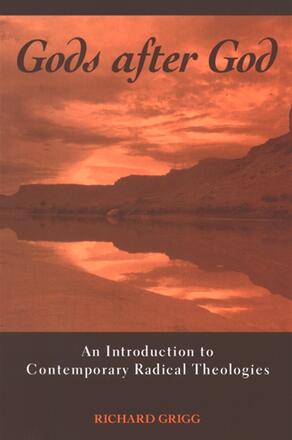
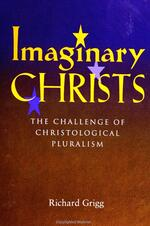
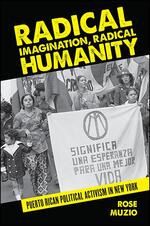
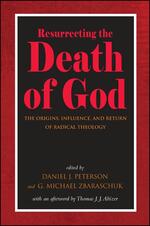
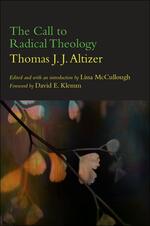
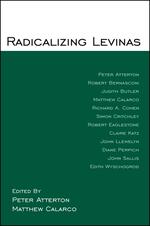
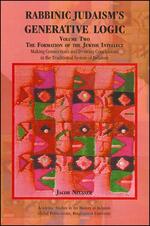
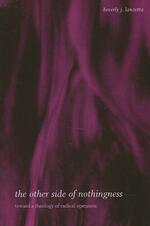
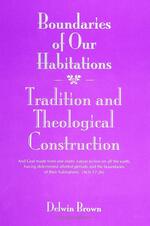

No comments:
Post a Comment